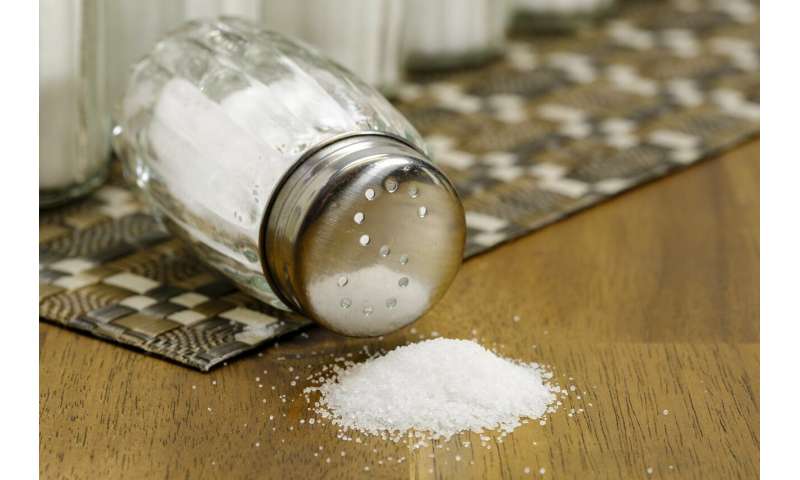Best of Last Week – Grape fireballs in microwave ovens, Japanese probe lands on asteroid and impact of salt on allergies

It was a good week for physics as a team at Tel Aviv University unveiled new imaging technology that captures the movement of quantum particles with unprecedented resolution—it allows for the exploration of the generation and propagation of excitons in 2-D materials with unprecedented resolution.
A team with members from McMaster, Concordia and Trent Universities explained why fireballs erupt from grapes in a microwave oven— it has to do with hotspots that lead to the formation of plasma. And the world's finest gold specimen was probed with Los Alamos neutrons at the laboratory's neutron science center to learn more about its structure and formation process. Also, a team at MIT announced that they had calculated a proton's pressure distribution for the first time—they found that the particle contained a highly pressurized core that was generating greater pressures than those found inside a neutron star. And a team with members from Rutgers University and the University of Florida discovered what they described as exotic spiraling electrons that spin like planets.
In other news, solar technology company Insolight announced that their new residential solar panels delivered record-breaking efficiency—a 29 percent yield. Also, the Japan Aerospace Exploration Agency announced that its probe Hayabusa2 landed on a distant asteroid—the probe was launched in 2014, cost 30 billion yen and landed successfully on the Ryugu asteroid which is 300 million kilometers from Earth. And a team at the South Australian Health & Medical Research Institute conducted a study that showed why high-protein diets are unhealthy—they speed up protein synthesis, which produces more errors, resulting in a shorter lifespan. Also, NASA officials announced that the New Horizons spacecraft returned its sharpest views yet of Ultima Thule—an object in the Kuiper Belt.
And finally, if you suffer from certain allergies, you might be interested in the results of a study conducted by a team at the Technical University of Munich—they found that salt could be a key factor in allergic immune reactions. They found its presence led to the formation of Th2 cells which are known to play a role in allergic conditions.
© 2019 Science X Network